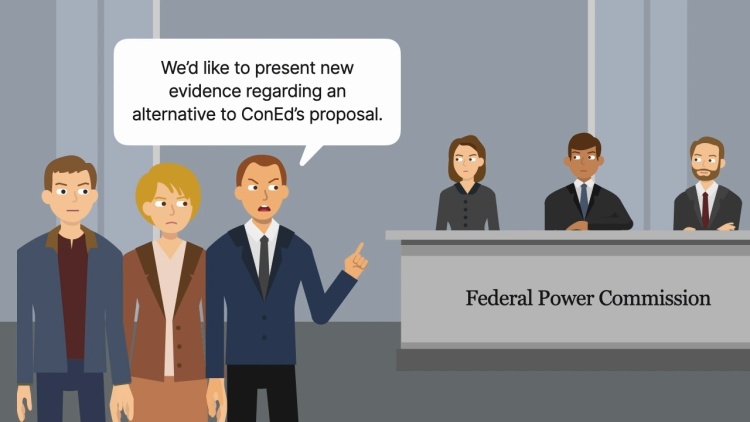Scenic Hudson Preservation Conference v. Federal Power Commission
United States Court of Appeals for the Second Circuit
354 F.2d 608 (1965)
- Written by Robert Cane, JD
Facts
Consolidated Edison Company of New York, Incorporated (ConEd) applied to the Federal Power Commission (the commission) (defendant) for a license to construct a pumped-storage hydroelectric project known as the Storm King project. ConEd’s license application proposed that during periods of low demand for electricity, electric pumps would force water up Storm King Mountain. During periods of peak demand, water would be released to power hydroelectric generators. While the commission was considering the license application, Hilltop Cooperative of Queens (Hilltop), a local consumer group, offered to the commission testimony from Alexander Lurkis on the feasibility of using gas turbines instead of pumped storage for the project. Lurkis had based his analysis on 15 years of projections and was prepared to answer any objections to the gas-turbine alternative and offer an economic comparison of the gas-turbine alternative and the pumped storage. The commission rejected Hilltop’s petition to intervene as not timely. Two months later, the commission granted ConEd a license for the Storm King project. The Scenic Hudson Preservation Conference (plaintiff) reoffered Lurkis’s testimony, but the commission rejected the testimony as merely a disagreement between experts. The record contained no meaningful evidence that contradicted Lurkis’s proffered testimony in favor of the gas-turbine alternative. The commission did not develop evidence concerning the gas-turbine alternative and did not reexamine its determination to grant ConEd a license. The commission also refused to consider information about fish protection devices and underground transmission facilities. The Scenic Hudson Preservation Conference filed a petition to set aside the commission’s order granting ConEd a license for the pumped-storage project.
Rule of Law
Issue
Holding and Reasoning (Hays, J.)
What to do next…
Here's why 907,000 law students have relied on our case briefs:
- Written by law professors and practitioners, not other law students. 47,100 briefs, keyed to 996 casebooks. Top-notch customer support.
- The right amount of information, includes the facts, issues, rule of law, holding and reasoning, and any concurrences and dissents.
- Access in your classes, works on your mobile and tablet. Massive library of related video lessons and high quality multiple-choice questions.
- Easy to use, uniform format for every case brief. Written in plain English, not in legalese. Our briefs summarize and simplify; they don’t just repeat the court’s language.





